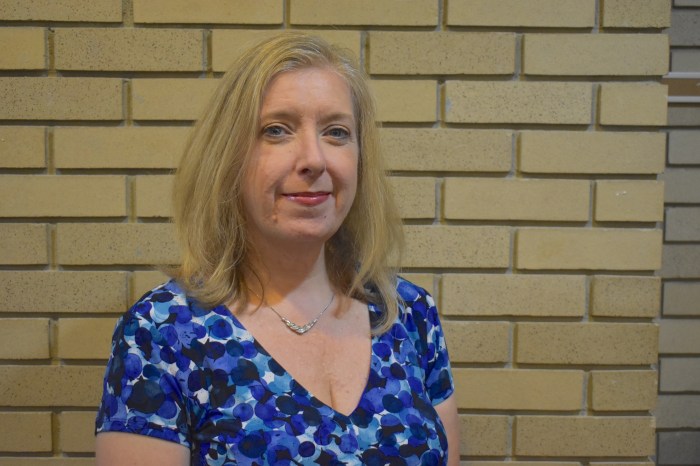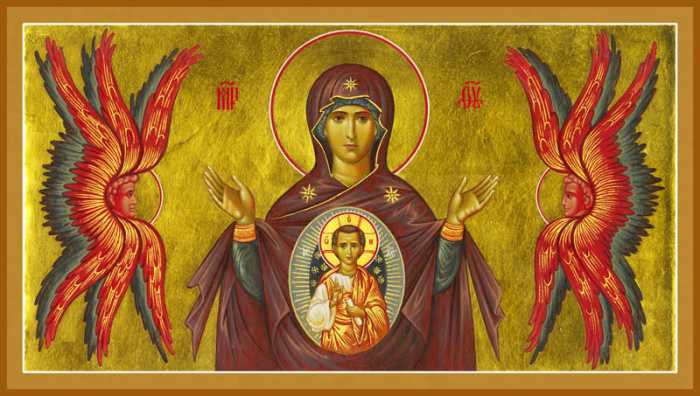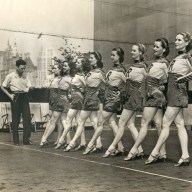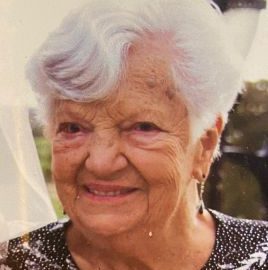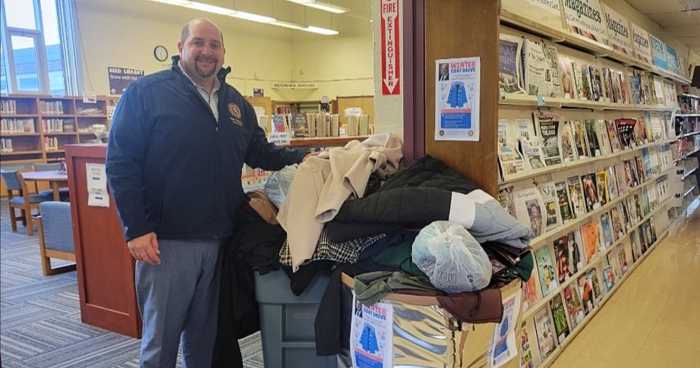Raynham Hall Museum in Oyster Bay will present a lecture by researcher Claire Bellerjeau on her recent important discovery of what is believed to be only the sixth known poem by Jupiter Hammon. A slave from Lloyd Harbor, Hammon was the first black writer to be published in America. The lecture is on Sunday, March 29, at 4 p.m.
Bellerjeau discovered the unpublished poem in the Townsend Family Papers at the New York Historical Society.
“I am pretty well acquainted with the Townsend family as I have been doing research on one of the slaves of the family for 10 years,” said Bellerjeau, who expects to have her paper published in the New York History Journal later this year.
In the course of writing this paper, she was doing research at the New York Historical Society last November. She explained that it is a rare opportunity for a person to get access to these facilities: they only allow registered researchers and there is a limited amount of time that they can be in the facility. So, she decided to photograph documents with her iPad to refer to later for review.
“On Valentine’s day, I was driving with my husband to see my son up at [the University of Connecticut],” said Bellerjeau, a former Oyster Bay resident who now lives in Madison, CT. “I was looking at the photos and came across the third page of this poem.”
She said she then did a search on Google for the rest of the transcript, and nothing came up.
“I had a major ‘aha’ moment,” Bellerjeau said.
She said she then realized how few poems by Jupitor Hammond are known to exist.
The untitled three-page poem is religious in nature, and pays tribute to Anne Hutchinson, a 17th century Puritan who was banished from the Massachusetts Bay Colony when she fought for her religious freedom.
Born in 1711, Hammon was a slave belonging to three generations of the Lloyd family who was never emancipated. He was educated alongside the family’s children, and published his first known work in 1761. Hammon is known to have written five other poems, one of which was also unpublished, and three essays. He is now considered to be the father of African-American literature.
A deeply religious man who acted as a minister to other slaves, he wrote along the theme of salvation and the possibility of being equal to whites in God’s eyes.
“I would imagine that idea was not too popular among slave owners, and I would guess that is the reason why this poem was never published,” Bellerjeau said.
She explained that for any writings by slaves to get published, they had to pass through the slave owners first.
She said one of the things that struck her about this poem is that it is an homage to Hutchinson, a woman who lived 127 years before Hammond’s time.
“It’s truly incredible,” she said. “He was educated enough, thoughtful enough and scholarly enough to pay tribute to her, a woman who also had a belief that she was equal in God’s eyes.”
Hutchinson was banished because of her religious beliefs: she claimed that God spoke to her and that she did not have to listen to men, only God.
“It was insanely rebellious…and she was considered dangerous to the colony,” Bellerjeau said.
She explained that the poem by Hammond is in three parts, titled “Sickness,” “Death” and “Funeral” and alludes to aspects of Hutchinson’s life; and since Hutchinson never had a proper funeral, Bellerjeau interprets the poem as a way of “laying her soul to rest.”
Bellerjeau will be discussing her finding and the nuances of the poem this Sunday at Raynham Hall Museum at 20 West Main St. in Oyster Bay.
Tickets are $25 per person, or $20 for members of Raynham Hall Museum. Reservations are required as space is limited.
Please call the museum at 516-922-6808 for more information and to reserve tickets.





